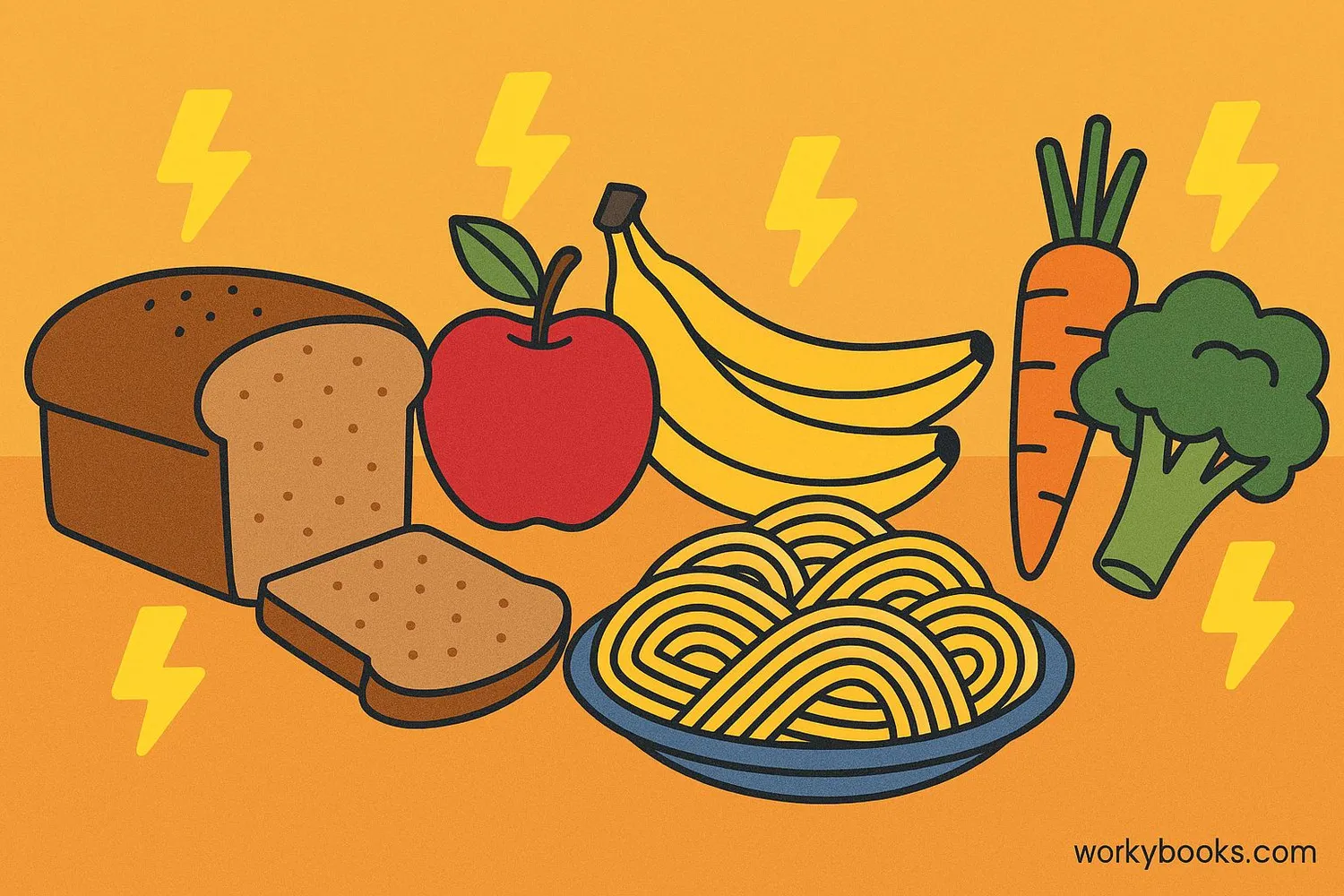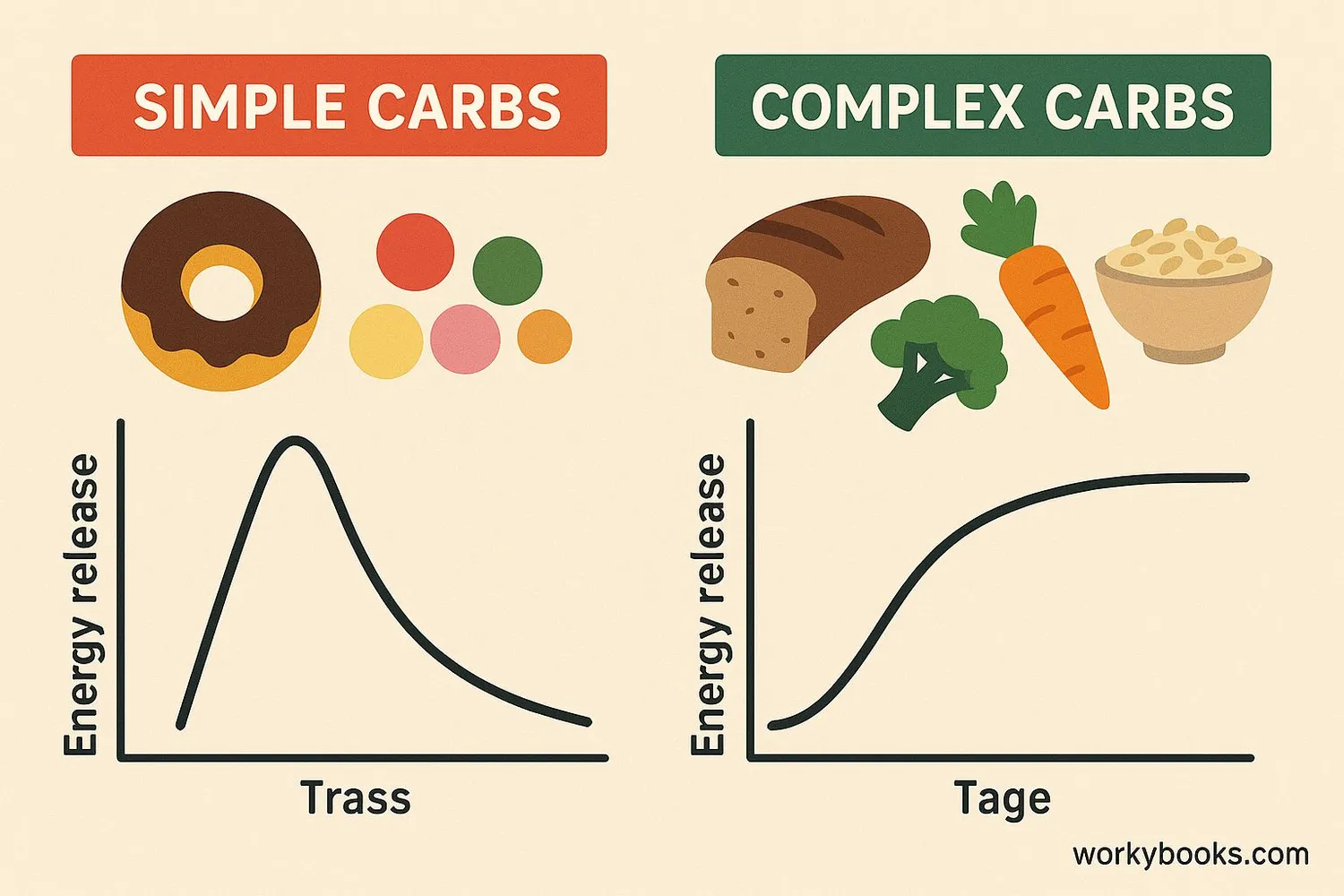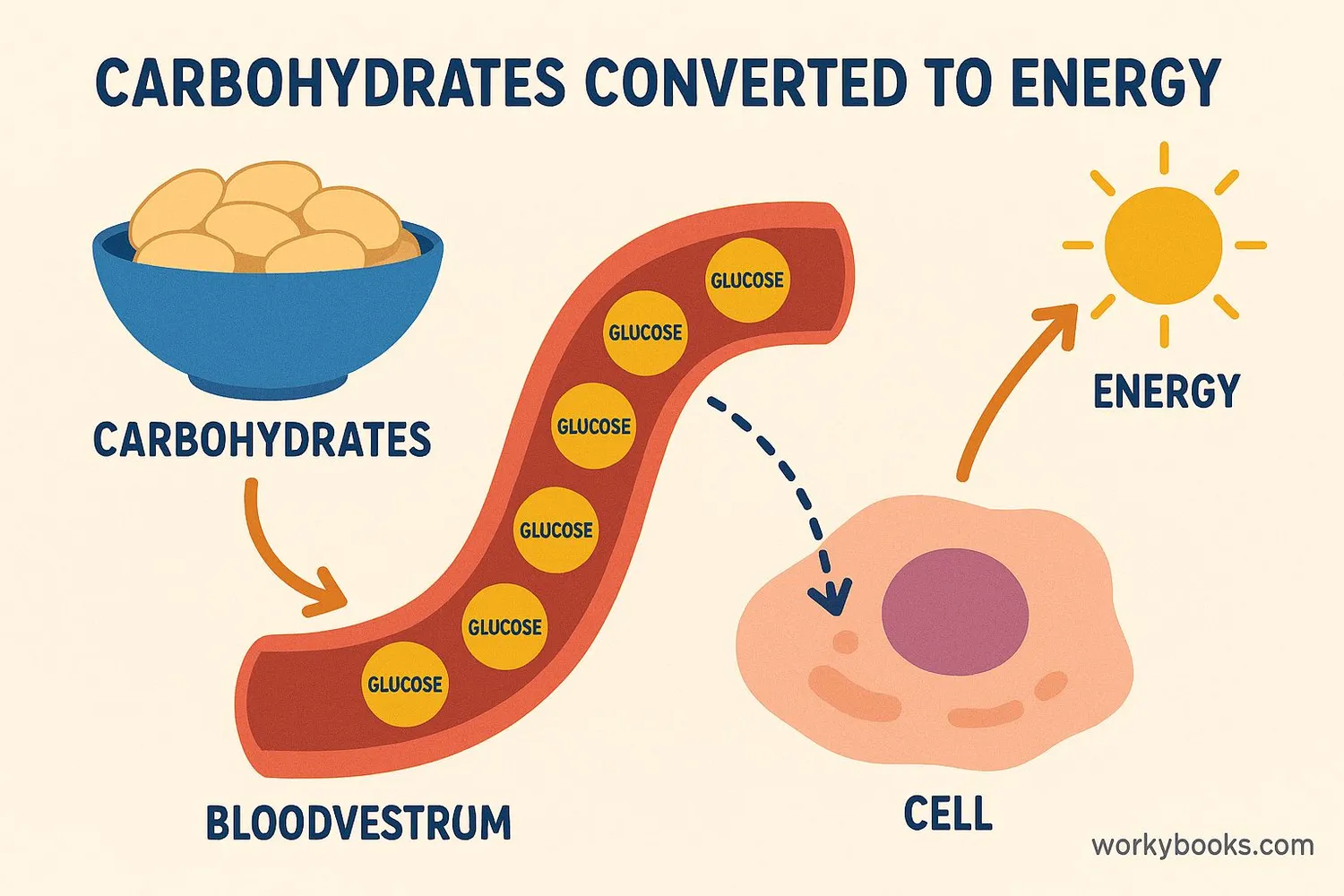Carbohydrates - Definition, Examples, Quiz, FAQ, Trivia
Discover how carbohydrates provide energy for everything you do!
What are Carbohydrates?

Carbohydrates are one of the three main macronutrients that give your body energy, along with proteins and fats. They're found in many foods and are your body's preferred source of energy.
Think of carbohydrates as fuel for your body, just like gasoline is fuel for a car. When you eat foods with carbohydrates, your body breaks them down into glucose, which is a type of sugar that your cells use for energy.
Bread
Fruits
Vegetables
Grains
Milk
Did You Know?
Your brain uses about 20% of your body's energy, and it prefers to get this energy from carbohydrates!
Types of Carbohydrates

There are two main types of carbohydrates: simple carbohydrates and complex carbohydrates. Understanding the difference helps us make healthy food choices.
Simple Carbohydrates
These are sugars that are quickly digested and provide fast energy. Examples include table sugar, honey, and sugar in fruits.
Complex Carbohydrates
These are made of longer sugar chains that take longer to digest, providing sustained energy. Examples include whole grains, beans, and vegetables.
Dietary Fiber
A special type of complex carb that your body can't digest. It helps with digestion and keeps you feeling full.
The glycemic index is a scale that measures how quickly foods raise your blood sugar levels. Simple carbs usually have a high glycemic index, while complex carbs have a lower glycemic index.
Healthy Choice
For sustained energy throughout the day, choose complex carbohydrates like whole grains, vegetables, and beans instead of sugary snacks.
Why Carbohydrates Are Important

Carbohydrates play several essential roles in keeping your body healthy and energized:
Energy Source
Carbs provide glucose, the primary fuel for your brain and muscles
Energy Storage
Extra glucose is stored as glycogen in your liver and muscles for later use
Digestive Health
Fiber helps keep your digestive system working properly
Nutrient Supply
Many carb-rich foods provide essential vitamins and minerals
Energy metabolism is the process your body uses to convert food into energy. Carbohydrates are the most efficient source of energy for this process.
When planning meals, it's helpful to practice carb counting to ensure you're getting the right amount of carbohydrates for your energy needs. This is especially important for people with diabetes who need to manage their blood sugar levels.
Balanced Diet
About 45-65% of your daily calories should come from carbohydrates, mostly from complex carbs and natural sugars in fruits and vegetables.
Carbohydrates Knowledge Check
Test what you've learned about carbohydrates with this quiz!
Frequently Asked Questions
Here are answers to common questions about carbohydrates:
Interesting Carbohydrate Facts
Discover some fascinating facts about carbohydrates!
Brain Power
Your brain uses about 120 grams of carbohydrates each day, which is more than any other organ in your body! That's why eating breakfast helps you think better in school.
Global Staples
Most of the world's population depends on carbohydrates as their main food source. Rice feeds almost half the world's people, and wheat is a close second!
Energy Comparison
Carbohydrates and proteins provide 4 calories per gram, while fats provide 9 calories per gram. This is why carb-rich foods are efficient energy sources without too many calories.
Fiber Discovery
The importance of dietary fiber wasn't understood until the 1970s! Before then, food processing often removed fiber from foods like bread and rice, making them less nutritious.





